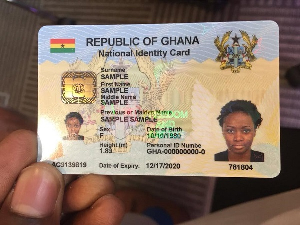EXPLAINER: What a sinking fund means and why government used it to repay bondholders

For those who may have come across the term but do not fully understand it, this GhanaWeb Business article provides a breakdown of what a sinking fund is, its purpose, and why it is important to have one in place.
A sinking fund, according to the Corporate Finance Institute, is a type of fund specifically created for repaying debt.
The account holder’s responsibility is to set aside a certain amount of money on a weekly, monthly, or quarterly basis for a particular purpose whether for debt repayment, education, a wedding, or other financial goals.
In finance, a sinking fund is mostly used by corporations for bonds, where money is deposited to buy back issued bonds or portions of bonds before their maturity date.
“It is also one way of enticing investors because the fund helps convince them that the issuer will not default on their payments,” the Corporate Finance Institute noted.
Simply put, a sinking fund is created to make debt repayment easier and to ensure that default does not occur by setting aside sufficient funds to meet obligations.
Although most bonds take several years to mature, having a sinking fund allows for gradual repayment of the principal amount, reducing credit risk over time.
A sinking fund cannot be created in isolation, as there are regulations governing its management to ensure proper oversight and accountability.
Sinking funds must be invested in accordance with guidelines set by regulatory bodies, such as the Bank of Ghana or the Securities and Exchange Commission.
Having this type of fund provides a sense of financial security, as the money is reserved for a specific purpose.
It differs from a regular savings account, which can be used for multiple financial needs. While both serve to enhance financial stability, a sinking fund is designated solely for a predetermined financial obligation, such as debt repayment.
Background
President John Dramani Mahama has directed the Ministry of Finance to settle outstanding Domestic Debt Exchange Programme (DDEP) coupons and build a financial buffer through the Sinking Fund.
In line with this directive, on Monday, February 17, 2025 the Ministry of Finance disbursed a Payment-In-Cash (PIC) coupon of GH¢6.081 billion to all DDEP bondholders.
Additionally, a Payment-In-Kind (PIK) portion of GH¢3.46 billion has been credited to bondholders’ securities accounts, in accordance with the terms outlined in the DDEP Memorandum.
To further strengthen the country’s debt management strategy, the government has also deposited GH¢9.7 billion into the Debt Service Recovery Cedi Account (Sinking Fund).
This move is intended to serve as a buffer for the next five DDEP coupon payments due in July and August 2025.
Source: www.ghanaweb.com





